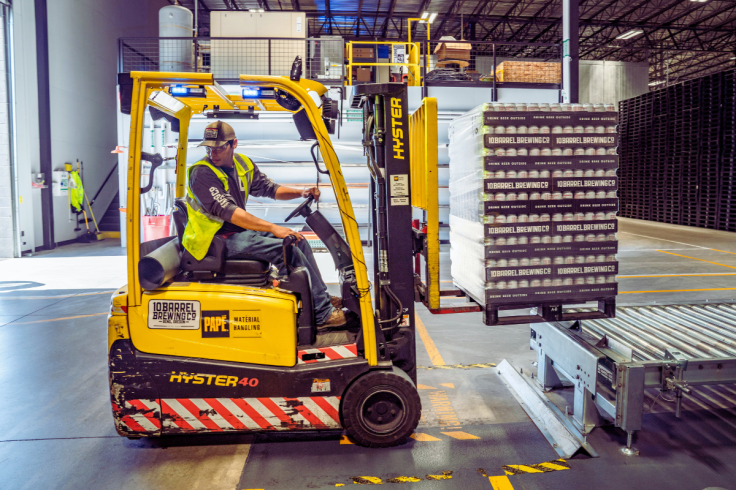Trump's Trade Threat Sparks Surge in 'Snooze' Warehousing Demand
This 'snooze' strategy, as some call it, reflects a desperate bid to dodge the financial sting of Trump's trade war, particularly the eye-watering 145% levies on Chinese imports.

Donald Trump's tariff policies, reintroduced with gusto in 2025, have sent shockwaves through global trade, leaving US importers scrambling for creative solutions. One tactic gaining traction is the rush for bonded warehouses - secure facilities where goods can sit for up to five years without incurring tariffs.
This 'snooze' strategy, as some call it, reflects a desperate bid to dodge the financial sting of Trump's trade war, particularly the eye-watering 145% levies on Chinese imports.
But with costs soaring and space dwindling, is this a clever workaround or a fleeting reprieve?
Importers Scramble for Storage Solutions
The demand for bonded warehousing exploded in April 2025, with inquiries skyrocketing, according to Flexe, a US storage network. Their data shows 19 requests for bonded space in the first four months of the year (17 in April alone) compared to just two in the same period in 2023 and 2024.
One Los Angeles provider reported 60 proposals for its bonded facilities by 29 April. Why the frenzy? Importers are betting they can delay duties, hoping Trump's trade policies soften or consumer demand justifies the eventual cost.
For retailers, stashing inventory near borders, like in Mexico or Canada, could mean faster delivery without immediate tariff hits, especially for high-demand items like air fryers or holiday decor.
Yet, this isn't a cure-all. Flexe's Ben Dean warns that bonded warehousing, while offering cash-flow relief, doesn't erase tariffs, it merely postpones them. 'A lot of folks see this as a panacea for tariffs,' Dean told Business Insider, 'but there is none.'
With bonded space costing up to 60% more than standard warehouses, and availability shrinking, many importers face a stark choice: pay up now or gamble on future trade deals.
Tariffs Fuel Economic Uncertainty
Trump's tariffs, including a baseline 10% on most imports and up to 145% on Chinese goods, have rattled markets and businesses alike. A Reuters report from 10 April 2025 notes that US import bookings plummeted 64% in early April as retailers paused orders, unsure where duties would land.
The National Retail Federation forecasts a 20% drop in containerised imports for the second half of 2025, hitting crucial shopping seasons like back-to-school and Christmas.
This uncertainty has forced companies like Amazon to cancel summer orders from China, while retailers like Walmart brace for higher consumer prices.
The economic fallout could be severe. Economists warn that tariffs could add £750–£1,000 ($1,000–$1,334) to annual household costs, squeezing budgets already strained by inflation.
Importers Bet on Temporary Reprieves
Some importers are eyeing short-term wins. Trump's 90-day pause on certain tariffs, announced in April, gave brief hope for negotiations. Importers with goods in bonded warehouses could clear customs quickly if duties drop, avoiding the delays of ocean shipping.
But with China's 125% retaliatory tariffs still in place and talks faltering, as noted in a BBC report, the trade war shows no signs of cooling. For now, bonded warehouses offer a costly pause button, but space constraints and rising fees limit their appeal.
Trump's Tariff Gamble Risks Long-Term Chaos
Trump's trade threats have sparked a warehousing boom, but it's a Band-Aid on a deeper wound. Importers are burning cash to delay the inevitable, while consumers face looming price hikes.
Without clearer trade policies, businesses will keep hedging bets, and households will pay the price, potentially £83 billion ($110 billion) in added costs annually. Bonded warehouses might buy time, but they can't outrun the economic storm Trump's tariffs are brewing.
It's a high-stakes gamble, and the clock is ticking.
© Copyright IBTimes 2025. All rights reserved.





















